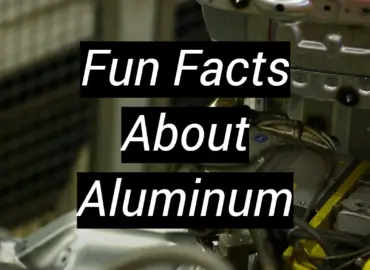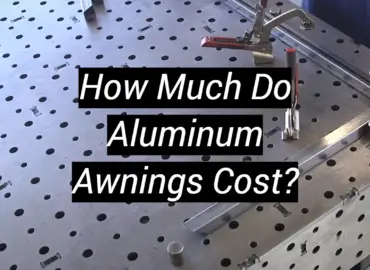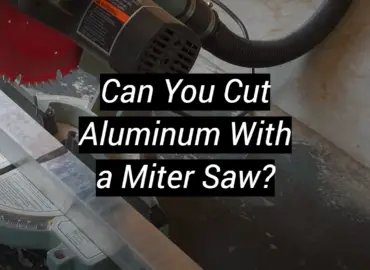Aluminum siding is a popular choice for many homes due to its durability and attractive look. But have you ever wondered how much aluminum siding weighs? The answer may surprise you. Depending on the thickness of the material, aluminum siding can weigh anywhere from two to over seven pounds per square foot. Read on to learn more about aluminum siding weight and compare it with other popular materials used in home construction.
What is aluminum siding?
Aluminum siding is a strong, durable material that is often used as exterior sheathing for homes. It’s lightweight, resistant to corrosion, and it helps insulate your home from the elements.
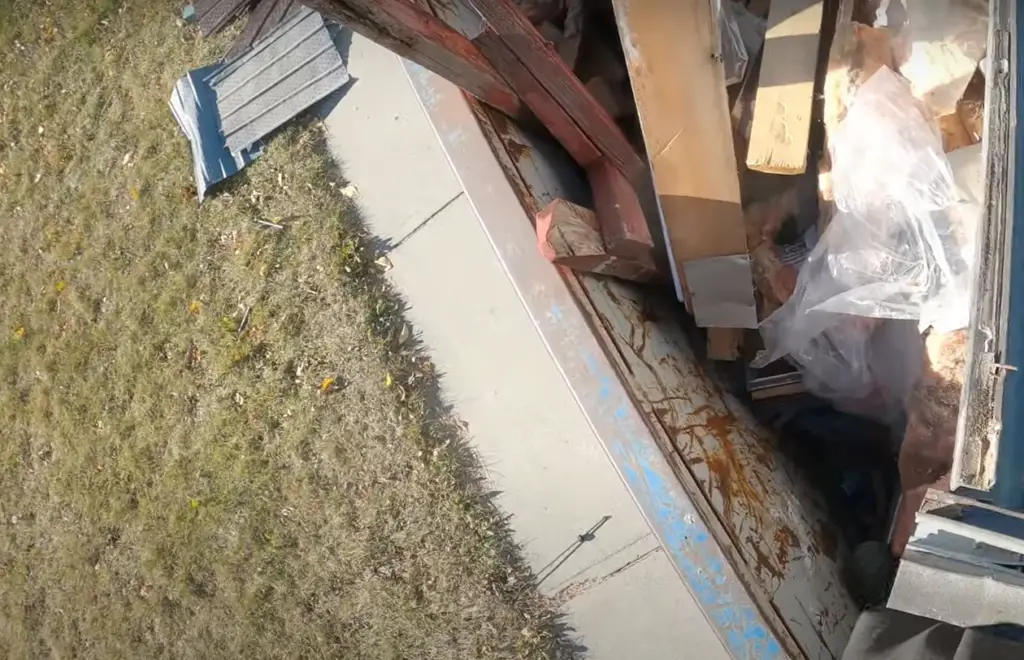
Aluminum siding can be painted in a variety of colors to match your home or give it a completely new look [1].
What type of aluminum is used for siding?
Most aluminum siding is made from two kinds of aluminum – 1100 and 3003 alloys:
- The 1100 alloy is the most common type used for home construction, as it is lightweight yet strong and resistant to corrosion;
- The 3003 alloy contains a mixture of metals such as manganese and copper, which makes it slightly heavier but more durable than the 1100 alloy.
How much does aluminum siding weigh?
Aluminum siding can weigh anywhere from two to over seven pounds per square foot, depending on the thickness of the material. Generally speaking, aluminum siding is lighter than other popular home construction materials such as wood, brick, and vinyl. The lightweight design makes it easier to install and reduces labor costs.
Overall, aluminum siding is an excellent choice for homeowners who are looking for a durable, attractive exterior material that won’t add unnecessary weight or cost to their homes. It’s lightweight yet strong enough to protect against weather and wear-and-tear damage while also helping reduce energy bills thanks to its efficient insulation.
When should you use aluminum siding?
Aluminum siding is a great choice for many reasons, including its durability and attractive look. Here are the top 10 uses of aluminum siding [2]:
Roofs
Aluminum siding makes a great roofing material as it’s lightweight yet strong enough to protect against weather damage, such as hail and wind.
Facades
Aluminum siding can be used to give your home an attractive look without having to worry about costly maintenance or repairs down the line.
Sheds
Its lightweight design makes aluminum siding perfect for constructing sheds or other outdoor structures that need to be able to withstand extreme weather conditions while remaining durable and long-lasting.
Garages
Aluminum siding is an excellent choice for garages, as it can provide a layer of insulation to keep the temperature inside comfortable and protect your car from the elements.
Outdoor Decks
Aluminum siding can be used to create beautiful outdoor decks that are strong enough to withstand heavy foot traffic while also looking great.
Siding
Installing aluminum siding on your home not only looks great but also protects against extreme temperatures, moisture, and pests like termites.
Porches
Aluminum siding is perfect for porches because it’s lightweight yet durable enough to stand up to moderate traffic without any damage or wear and tear over time.
Gutters
Aluminum siding can be used to create seamless gutters that look great and can withstand heavy rain and other extreme weather conditions.
Windows
Using aluminum siding for your windows helps reduce noise pollution, keeps them looking great, and makes it easier to clean them when needed.
Fascia Boards
Use aluminum siding as a fascia board around the outside of your home for an attractive look without worrying about costly maintenance or repairs down the line.
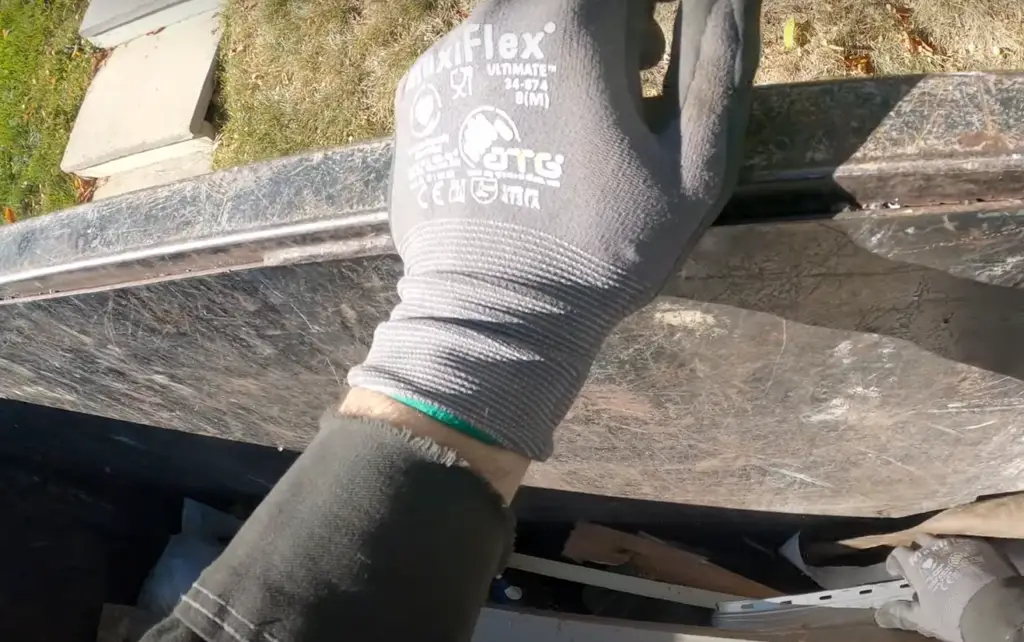
By using aluminum siding on your home, you can enjoy its decorative looks while also having a durable material that is resistant to corrosion and easy to maintain. Plus, the lightweight design makes installation faster and less labor-intensive, reducing costs in the long run.
Pros of aluminum siding
Here are some of the benefits of using aluminum siding [3]:
- Cost-effective: Aluminum siding is a cost-effective material as it does not require frequent maintenance and repairs. It can last up to 40 years or even longer depending on the weather conditions, making it an economical choice for homeowners;
- Low-maintenance: Aluminum siding requires minimal upkeep and cleaning due to its durable nature. This peculiarity makes it much easier to maintain than other materials such as wood or vinyl;
- Energy efficient: Aluminum siding helps keep your home warm in the winter and cool in the summer, which makes it energy efficient. Since aluminum has a low density, it’s more effective at insulating your home from extreme temperatures;
- Environmentally friendly: Aluminum is one of the most recycled materials, making it an environmentally friendly choice. It can be melted down and reused multiple times without losing its quality, which helps keep waste out of landfills;
- Waterproof & no rust: Aluminum siding is waterproof and does not corrode like other materials such as wood or metal. It makes it a great choice for homes that are near the ocean or in wet climates;
- Insect proof: Insects have difficulty trying to penetrate aluminum siding due to its tough outer layer and lack of organic material. It makes it a great option for those looking to protect their homes from pests;
- Fire-resistant: Aluminum siding is also fire-resistant, so you don’t need to worry about your home being of fire if there’s a heat source nearby;
- Durable: Aluminum siding is very durable and can withstand extreme temperatures, moisture, and pests without any damage or wear and tear over time. It makes it an excellent choice for long-term use;
- Attractive: Aluminum siding is also available in a variety of colors, designs, and textures to suit any home’s aesthetic. It makes it a great choice for those looking to make their home attractive without spending too much on materials or labor. Plus, aluminum siding is often pre-painted to save time and money.
Overall, aluminum siding is an excellent choice for homeowners who are looking for a durable, attractive exterior material that won’t add unnecessary weight or cost to their homes. It’s lightweight yet strong enough to protect against weather and wear-and-tear damage while also helping reduce energy bills thanks to its efficient insulation.
Cons of aluminum siding
Here are a few potential drawbacks to keep in mind when considering aluminum siding for your home:
- Aesthetics: Aluminum siding does not provide the same level of aesthetics as other materials such as wood or vinyl;
- Noise pollution: It can create a lot of noise when it is exposed to wind, rain, and hail;
- Shrinkage: Aluminum siding contracts and expands due to temperature changes, which can cause gaps between panels. It can allow water to seep in and damage your home’s interior;
- Installation costs: Installing aluminum siding is more labor-intensive than other materials, so the cost of installation may be higher;
- Vulnerability to dents: While aluminum is strong and durable, it is still susceptible to denting if hit with something heavy or sharp;
- Susceptibility to oxidation: It can corrode over time due to exposure to water, which can cause it to become weak and brittle;
- Difficult maintenance: Cleaning and maintaining aluminum siding can be more challenging than other materials such as vinyl or wood;
- High cost: Aluminum siding is typically more expensive than other materials, so it may not be the best choice for those on a budget.
Alternatives to aluminum siding
The most popular alternatives for aluminum siding include wood and vinyl [4].
Aluminum vs. Wood Siding
Wood siding is one option that has been popular for centuries as it provides a classic look with natural beauty. It also offers good insulation, is relatively strong, and can last up to 40 years with proper care and maintenance.
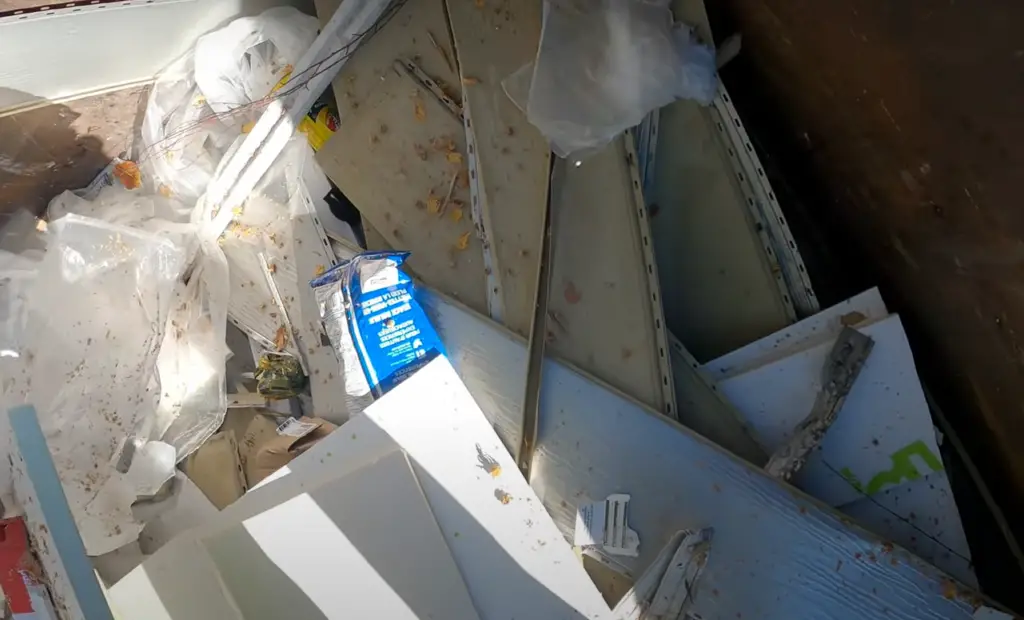
However, wood siding is more susceptible to rot, warping, cracking, and other forms of damage due to extreme weather conditions or insects. Wood siding requires regular staining or painting which increases upkeep costs.
Aluminum vs. Vinyl Siding
Vinyl siding is another option that provides a variety of colors and styles at a lower price than aluminum siding. It is also easy to install and maintain, as it doesn’t require regular painting or staining. However, vinyl siding is susceptible to damage from high winds and is not fire-resistant like aluminum. Vinyl can become brittle over time due to exposure to extreme temperatures which can cause it to crack or break.
What types of materials are compatible with aluminum siding?
Aluminum siding is compatible with a variety of materials such as brick, stone, stucco, and hardboard. It can also be combined with insulation and other materials to improve thermal efficiency and soundproofing. Aluminum siding can be used in conjunction with wood trim to provide an attractive contrast between the two materials. When it comes to color options, aluminum siding can be painted or stained to match your home’s exterior or interior design.
Overall, aluminum siding is a great option for homeowners looking for a durable yet cost-effective material that offers good insulation and protection against weather damage. Its low-maintenance nature makes it easy to maintain while its variety of colors and textures make it attractive and customizable. Aluminum siding is one of the most recycled materials available and can be melted down and reused multiple times without losing its quality. However, it does have some drawbacks such as noise pollution, shrinkage, vulnerability to dents, and susceptibility to oxidation which should all be taken into consideration when deciding if aluminum siding is right for your home.
Are there any risks associated with using aluminum siding?
Yes, there are a few risks associated with using aluminum siding. Here are the top ten of them [5]:
- Aluminum siding is strong and durable but can still be easily dented if something heavy or sharp hits it;
- Exposed to water, aluminum siding may corrode over time and become weak and brittle;
- Temperature changes can cause panels of aluminum siding to contract and expand, creating gaps that allow water in which could damage the home’s interior;
- Aluminum siding is typically more expensive than other materials such as wood or vinyl, so it should be taken into consideration when budgeting for a home renovation project;
- Aluminum siding does not provide the same level of aesthetics as wood or vinyl;
- Aluminum siding can fade over time when exposed to UV rays from the sun, resulting in an uneven appearance;
- Cleaning and maintaining aluminum siding can be more challenging than other materials such as vinyl or wood due to its susceptibility to corrosion and oxidation over time;
- Aluminum siding may create noise when it is exposed to wind, rain, hail, or other extreme weather conditions;
- Installing aluminum siding requires more labor-intensive work so the cost of installation may be higher than other materials.
- Aluminum siding is more susceptible to the growth of mold and mildew due to its porous surface. It can cause discoloration or deterioration in the siding’s appearance over time.
You should weigh these risks against your needs when deciding if aluminum siding is right for you and your home. If any of these risks are a concern, then it might be wiser to consider an alternative material such as wood or vinyl siding instead.
Can you recycle aluminum siding?
Yes, you can recycle aluminum siding. Recycling aluminum siding helps to reduce the amount of waste going into landfills and is an important part of the effort to reduce environmental pollution.

Aluminum is a valuable resource that can be recycled indefinitely without losing its properties or quality.
FAQs
Is aluminum siding heavy?
Yes, it is. Aluminum siding is heavier than other siding materials such as vinyl or wood. On average, one square foot of aluminum siding weighs between 4 and 7 pounds.
Is aluminum siding expensive?
Aluminum siding can be more expensive than other siding materials such as wood or vinyl. However, it is more durable and requires less maintenance in the long run, which can save you money on repair and replacement costs. When compared to other siding materials, aluminum siding is cost-effective and can help you save on energy costs over time [6].
How thick is aluminum siding?
Aluminum siding typically comes in thicknesses of 16, 18, 20, and 22 gauge.
The thicker the gauge, the more durable and resistant to dents and scratches the siding will be. However, thicker aluminum siding may also cost more than thinner gauges.How strong is aluminum siding?
Aluminum siding is a strong and durable material that can withstand extreme weather conditions. It is also resistant to insects, water, rust, and fire. Aluminum siding is less prone to cracking, warping, and fading compared to other materials such as wood or vinyl. Therefore, it can last for many years with minimal maintenance.
Is aluminum siding the same as metal siding?
No, aluminum siding is not the same as metal siding. Aluminum siding is made of a lightweight alloy of aluminum and other metals such as magnesium and silicon. It has a smooth, glossy finish that is resistant to corrosion and rusting. Metal siding, on the other hand, is made of heavier materials such as steel or copper and has a more industrial look. Metal siding is also much stronger and more durable than aluminum siding [7].
Can you paint aluminum siding?
Yes, you can. You can paint aluminum siding. Painting aluminum siding is a great way to update its look and give it a fresh, new coat of paint. Before painting, you should clean the siding thoroughly and remove any debris or dirt.
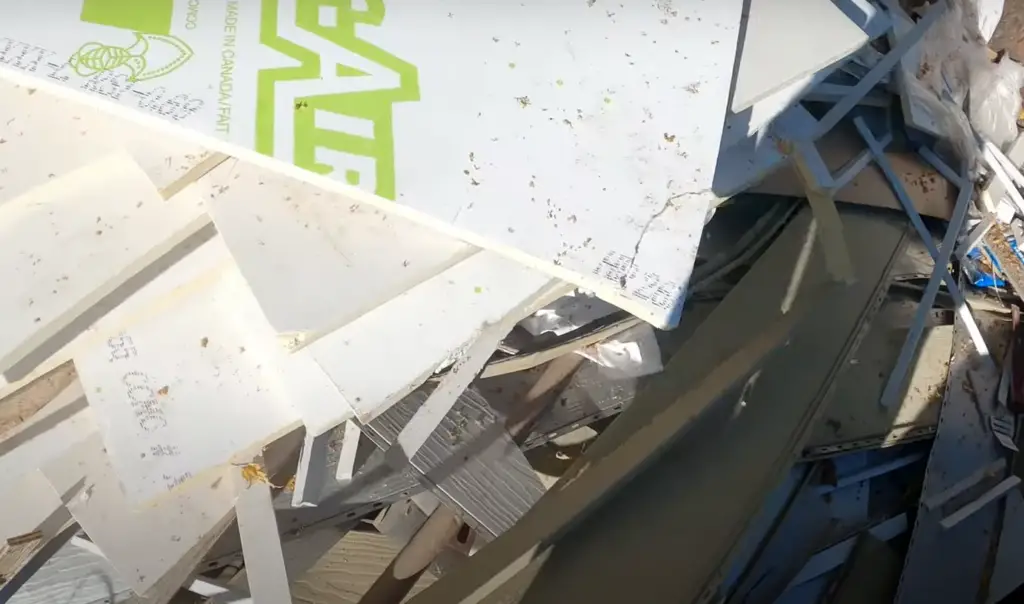
Priming the siding with a special primer designed for metal surfaces is also recommended to ensure that the paint adheres properly. Once the siding is primed, you can apply one or two coats of paint to give it a new, vibrant look.
Is aluminum siding magnetic?
No, it is not. Aluminum siding is not magnetic as it is made from a non-magnetic alloy. On the other hand, metal siding which is typically made of steel, would be magnetic.
Can you pressure wash the aluminum siding?
Yes, you can pressure-wash aluminum siding. The pressure should never exceed 3,000 PSI to avoid damaging the aluminum. You should use a wide-angle spray tip and move it slowly over the surface of the siding while washing.
Useful Video: Selling Soda CANS for SCRAP Metal $$$ How much Money will I get? R. Stroud’s Aluminum Copper Recycle
Conclusion
Aluminum siding is a great option for many types of homes due to its durability, low maintenance, energy efficiency, and environmental friendliness. While it may not be suitable for everyone, if you do decide to use aluminum siding for your home, you should be aware of its weight so that you can properly install it. However, with proper installation and maintenance techniques, it will provide many years of protection for your home.
References:
- https://www.homequestionsanswered.com/what-is-aluminum-siding.htm/
- https://www.rooftopdesigns.net/blog/2020/october/aluminum-siding-should-you-replace-it-/
- https://promarkproducts.com/en/aluminum-siding-advantages-disadvantages/
- https://sunshinecontractingcorp.com/blog/2020/11/11/common-aluminum-siding-problems-why-you-should-replace-it/
- https://www.4feldco.com/articles/aluminum-siding-problems/
- https://www.4feldco.com/articles/aluminum-vs-vinyl-siding/
- https://www.buildwithrise.com/stories/aluminum-steel-metal-siding




